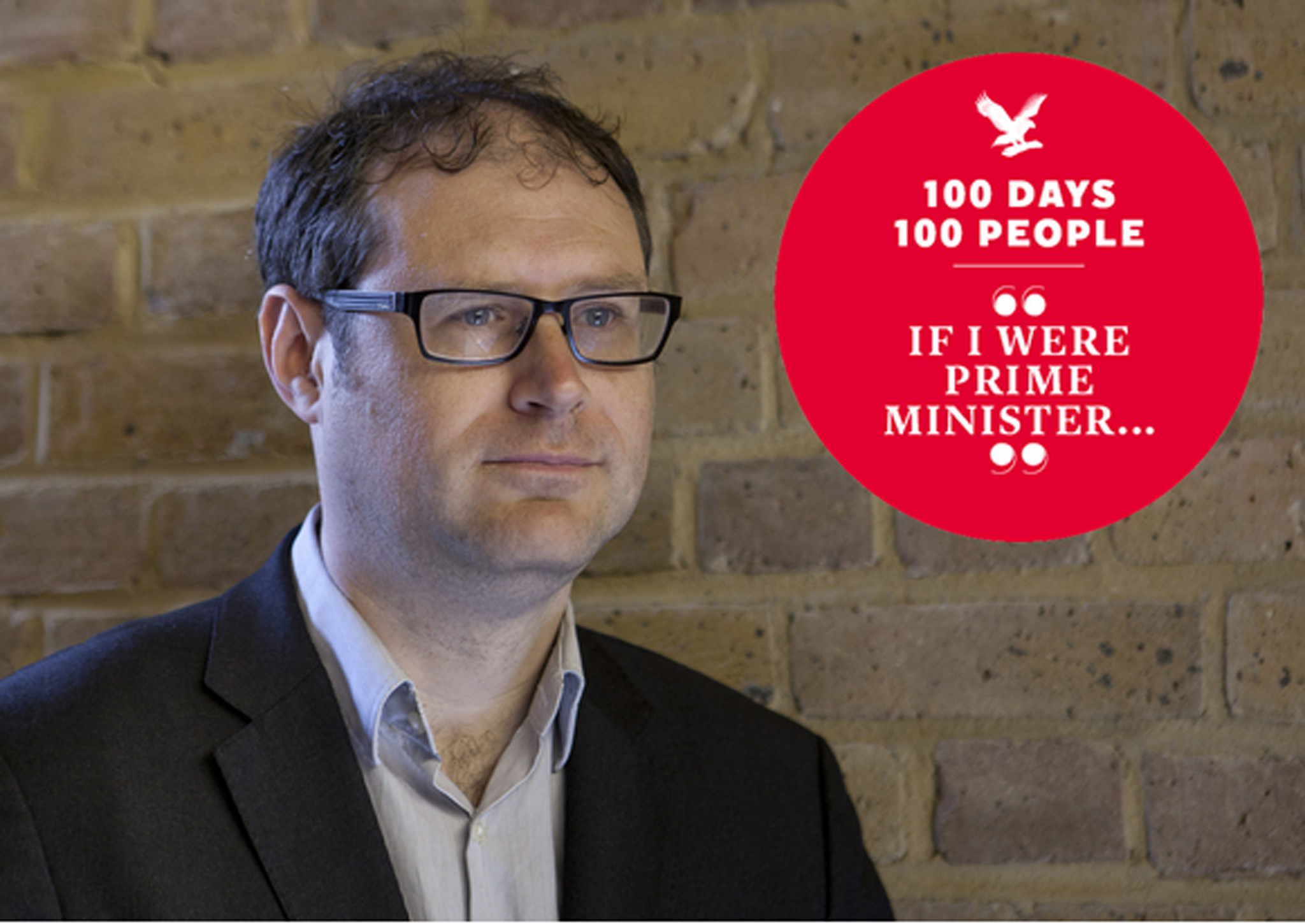If I were Prime Minister: I would grant Edward Snowden asylum
Our series in the run-up to the General Election – 100 days, 100 contributors, but no politicians – continues with the Executive Director of the Open Rights Group

Your support helps us to tell the story
From reproductive rights to climate change to Big Tech, The Independent is on the ground when the story is developing. Whether it's investigating the financials of Elon Musk's pro-Trump PAC or producing our latest documentary, 'The A Word', which shines a light on the American women fighting for reproductive rights, we know how important it is to parse out the facts from the messaging.
At such a critical moment in US history, we need reporters on the ground. Your donation allows us to keep sending journalists to speak to both sides of the story.
The Independent is trusted by Americans across the entire political spectrum. And unlike many other quality news outlets, we choose not to lock Americans out of our reporting and analysis with paywalls. We believe quality journalism should be available to everyone, paid for by those who can afford it.
Your support makes all the difference.If I were Prime Minister, the first thing I would do is grant asylum to whistleblower Edward Snowden and appoint him as a special advisor to the Intelligence and Security Committee, the committee responsible for holding the UK's intelligence services to account.
Snowden would provide first-hand technical knowledge of the agencies' capabilities and the risks that their work poses for human rights, Internet security and the digital economy. This might not go down too well with the powers that be and would probably mean that I would have a week before the intelligence services launched their coup to get me out. But a week is a long time in politics, so here goes:
Despite my healthy commitment to free speech, I would ban politicians and members of the ISC from uttering the words, “if you have nothing to hide, you have nothing to fear”. The penalty would be immediate publication of bank details, passwords and those naked selfies kept for when journalists posing as 23-year-old “models” get in touch.
It’s been a bit grating to hear security chiefs say that they need to gather all of our personal data into a giant “haystack” so they can search for “needles” and that without said haystack they won’t find any needles.
To prevent future security chiefs from making the same mistake, I would introduce a new application process for the intelligence services. In the initial interview process, applicants will build two haystacks, one small, one large. Those that think it will be easier to find a needle in the larger pile will not have their application progressed further and sent back to primary school to learn some basic Maths.
Unsurprisingly, I would put an end to the mass collection of all of British citizens' personal communications by the security services. And the agencies and the bodies that oversee them would become accountable to Britain's elected MPs, not me and the executive.
I would also be the first front bench politician to utter the words, “GCHQ have acted unlawfully”, as found by a court (the Investigatory Powers Tribunal). Similarly, Government ministers would no longer be able to sign off warrants for surveillance. Instead that decision would be made by independent judges on a case-by-case basis.
I'd repeal DRIPA, the legislation that forces internet service providers to keep all our data for at least a year because, after all, we are all guilty of using technology to communicate. I would also repeal RIPA, the legislation that allows the police, local councils and other organisations (which just nine months ago included well known crime fighters, the Egg Marketing Board) to access our personal information with minimum supervision.
I would appoint people who understand technology to every department possible. Hopefully we’d get less chocolate teapot policies like Internet filtering and the three strikes and you are disconnected Digital Economy Act (remember that? So bad they never got it to work.) I’d also change the law to make it easier for citizens to challenge bad laws. We have rights, like privacy and free expression, that politicians are too keen to undermine, ignore and vilify: it’s time we made use of them to protect our far too fragile democracy.
Join our commenting forum
Join thought-provoking conversations, follow other Independent readers and see their replies
Comments